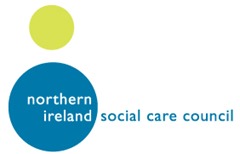Care standards pivotal to TYC
 Colum Conway, Chief Executive of the Northern Ireland Social Care Council, highlights the importance of regulating and improving social care standards as TYC focuses on moving services into a community setting.
Colum Conway, Chief Executive of the Northern Ireland Social Care Council, highlights the importance of regulating and improving social care standards as TYC focuses on moving services into a community setting.
The purpose of the Northern Ireland Social Care Council is to regulate the social care workforce and provide professional leadership for the sector. Through regulation we aim to strengthen and support the professionalism of the workforce, raise standards (whether in practice, training or education) and protect the people who are using care services.
The social care workforce includes social workers and social care workers in a wide range of settings i.e. those who work in care homes, supported living, day care centres and domiciliary care services.
Regulation takes place in two ways.
Firstly, workforce registration − all social workers and designated groups of social care workers must be registered with the Council and are required to work to our code of practice. We are currently phasing in compulsory registration and have 22,000 registrants out of a potential workforce of 35,000.
Secondly, training − we regulate the training of social workers at qualifying and post − qualifying level. For social care workers, we approve the occupational standards that underpin the qualifications and oversee a learning and development framework.
We base our model of regulation on standards of conduct and practice set out in our codes of practice, which people are required to work to once they are registered. This is an effective form of regulation as we have the power to admonish or suspend registrants; or in serious cases remove people from the register who fail to meet these standards, to ensure they cannot work in a care setting again. It is therefore open to anyone to make a complaint or raise concerns about an individual’s professional conduct or practice. In many cases relating to vulnerable people, it is often the attitude and behaviour of individuals that are the most significant aspects of a failure to deliver quality care.
We continue to work alongside employers and registrants to set and improve standards of practice. Over recent years, the standard of social work has been continuously raised where it is now a fully graduate workforce and we have in place a professional development framework for social workers, to support their continued learning. We also have a learning and development framework for social care workers, to raise standards of practice through ongoing training and guidance.
One key element of TYC is to increase the use of community and home-based services so that the need for hospital based interventions can be reduced. Transferring people from institutionally-controlled hospital settings to home and community settings requires skills in assessment, the management of risk, and the ability to work with people in a holistic way, addressing their physical, social and emotional needs. In my view, the social care workforce is well trained, skilled and sufficiently knowledgeable to respond to the challenges presented by TYC. For example, in the development of ICPs, the knowledge and skills that social workers have will be invaluable in supporting the partnerships, and enabling the development of community-based interventions.
 The regulation of the social care workforce is a vital component of the overall implementation of TYC, providing assurance that this workforce continues to develop the skills and knowledge to provide high quality services to those who are in need of care and support.
The regulation of the social care workforce is a vital component of the overall implementation of TYC, providing assurance that this workforce continues to develop the skills and knowledge to provide high quality services to those who are in need of care and support.
www.niscc.info





